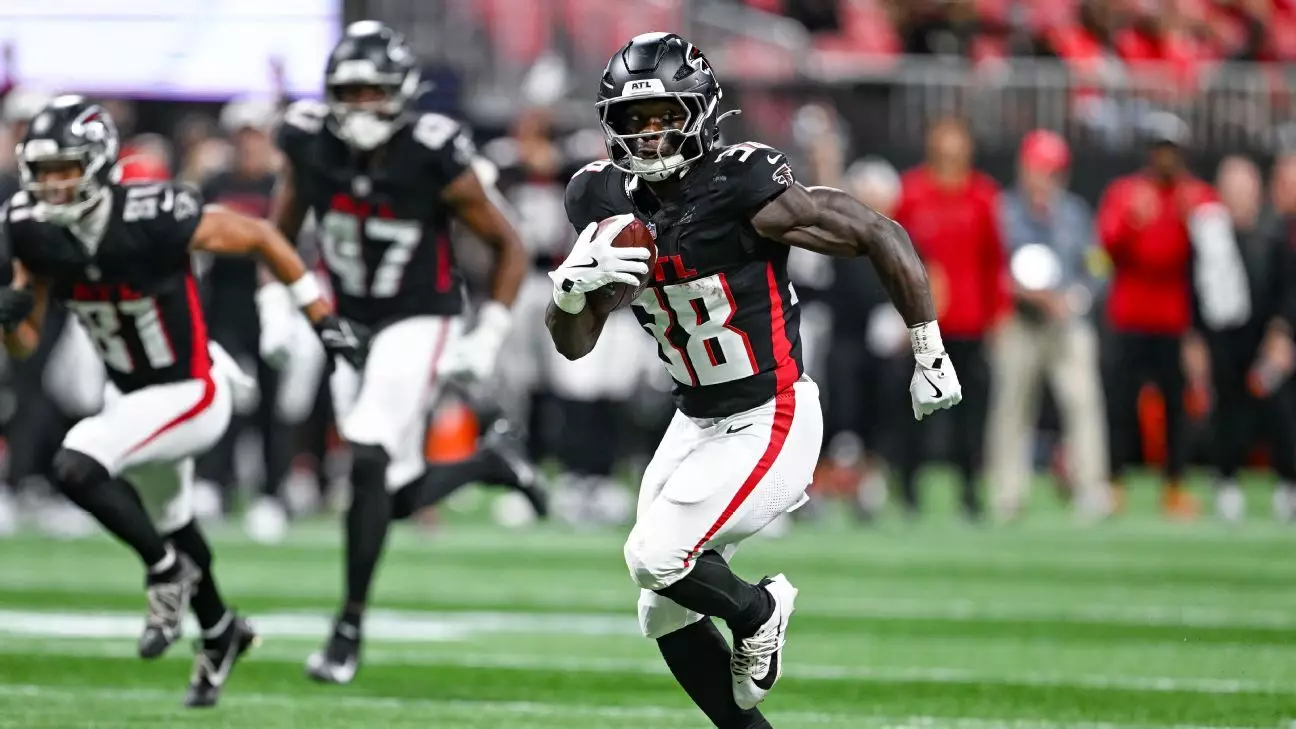In the high-stakes world of professional football, every yard gained and every play executed carries with it the weight of physical and mental resilience. Yet, some moments transcend mere athleticism, revealing the raw human spirit that fuels athletes beyond their sporting prowess. Nathan Carter’s recent performance with the Atlanta Falcons exemplifies this truth. After enduring a traumatic injury in a preseason game—a collision that resulted in a game stoppage and a fellow player’s hospitalization—the rookie running back responded not with despair, but with an extraordinary display of determination and faith. This shift from trauma to triumph illuminates the profound connection between mental toughness and unwavering belief in oneself and others.
Carter’s journey underscores the importance of mental resilience in the face of adversity. The injury caused by his attempt to hurdle over a defender could have been a moment of crippling doubt or hesitation. Instead, Carter approached the subsequent game with a measured confidence, buoyed by the steady progress of Morice Norris, the injured player. Norris’s recovery—and his reports of being well—became a source of encouragement that allowed Carter to focus solely on performing his best. This attitude reflects a maturity often underestimated in young athletes—an ability to process pain and fear through the lens of hope and purpose.
Beyond the physical, Carter’s response highlights an internal battle that many athletes face but seldom openly discuss—the quest to maintain composure and faith amid chaos. His mention of performing “for the Lord” signifies more than rhetoric; it is an affirmation that spiritual grounding can serve as a stabilizing force in a profession prone to unpredictability and injury. His reliance on faith for peace underscores a vital insight: true resilience is rooted not just in physical recovery, but in a mental and spiritual steadfastness that sustains individuals during their most challenging moments.
The Power of Support and Brotherhood on the Field
Carter’s connection with his coaching staff and teammates reveals a layer of camaraderie that often goes unnoticed in media narratives focused solely on statistics. When he took the field after the injury scare, NFL Head Coach Raheem Morris’s immediate presence and comforting gesture signaled a recognition that sports are ultimately about human connection. Morris’s pride in Carter’s fierce running style and tenacity reflects a mentorship rooted in nurturing character as much as developing skills.
The teammates’ enthusiastic reactions to Carter’s breakout run, especially the celebration following his 43-yard touchdown, serve as tangible evidence of a team ethos centered on encouragement and shared triumphs. It is a reminder that athletic success is rarely achieved in isolation—it is a collective effort built on trust and emotional support. For Carter, one of the league’s undrafted free agents with limited experience, this level of camaraderie can be pivotal. His fight for a roster spot isn’t just about raw talent but also about earning respect and confidence within a team culture that values perseverance and heart.
Furthermore, his outreach to Norris via social media underscores a profound awareness of the importance of human connection beyond the game. Carter’s interest in Norris’s recovery and his expression of hope demonstrate an understanding that athletic adversity can foster empathy and solidarity. Such gestures forge bonds that transcend competition, emphasizing that inside the chaos of preseason games and roster battles, genuine care quietly sustains players’ spirits.
Redefining Success Through Inner Strength and Purpose
Carter’s story challenges conventional notions of success in professional sports. His remarkable performance isn’t merely a statistical outcome; it encapsulates a broader narrative about purpose and perseverance. The moment he scored the touchdown, the visible joy and mutual celebration with Robinson and Allgeier turned a fleeting play into an emblem of collective perseverance. It became a testament to resilience—an assertion that setbacks, even those involving injury and uncertainty, can be catalysts for growth when approached with the right mindset.
His undrafted status and the rigorous competition with other running backs such as Carlos Washington Jr., Elijah Dotson, and Jashaun Corbin impose a stark reality: earning a place on the roster demands more than talent—it requires mental toughness, grit, and an unwavering belief in oneself. Carter’s impressive camp performance, coupled with his notable athletic measurables, underscore his potential. Yet, it is his capacity to remain calm amid adversity, driven by faith and support, that truly sets him apart.
Ultimately, Carter’s experience invites a broader reflection on what defines success in high-pressure environments. It posits that resilience, rooted in faith and camaraderie, can elevate an athlete beyond physical limitations or setbacks. His journey suggests that true victory lies not only in crossing the goal line but in overcoming internal doubts, embracing vulnerability, and staying committed to a higher purpose—even when the odds seem stacked against you. This narrative is not just about the game; it’s about the human capacity to endure, to hope, and to emerge stronger against all odds.


Leave a Reply